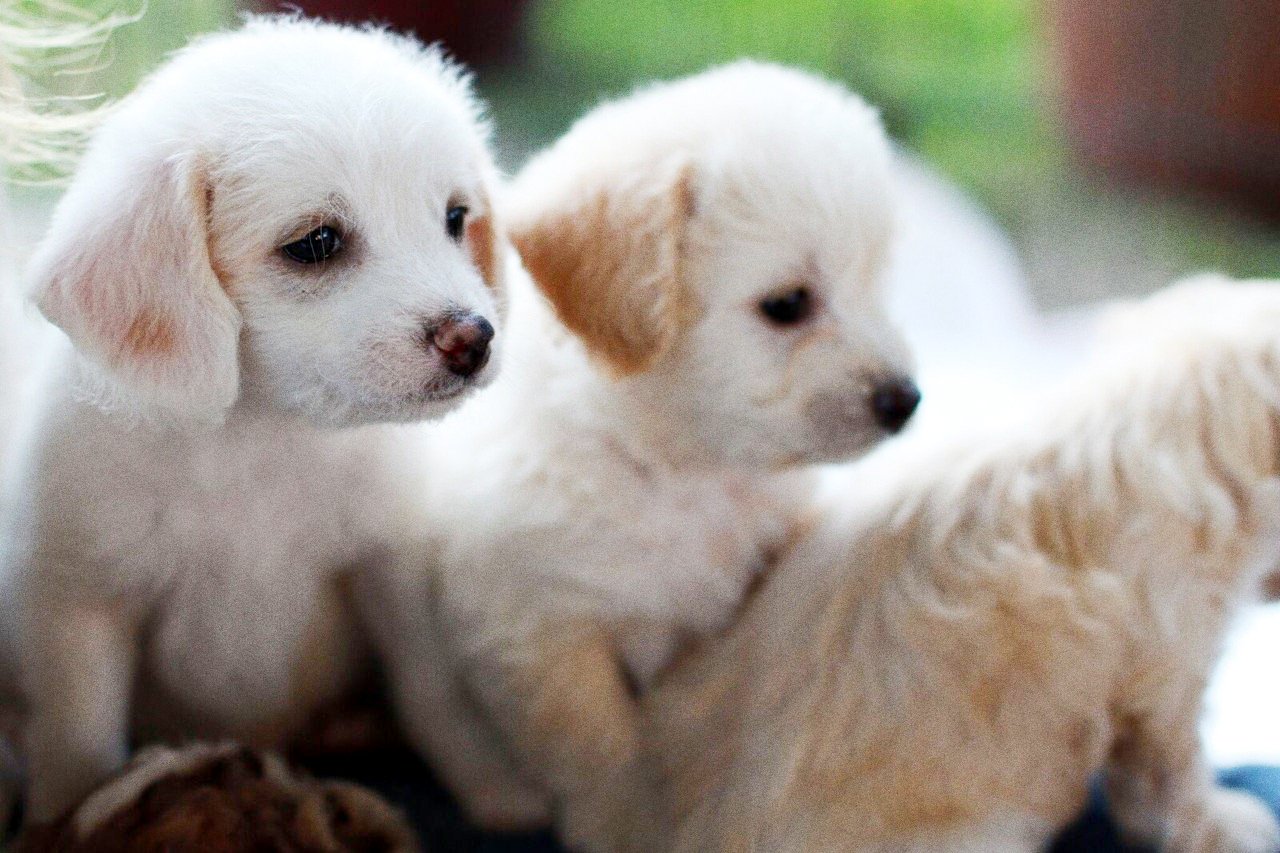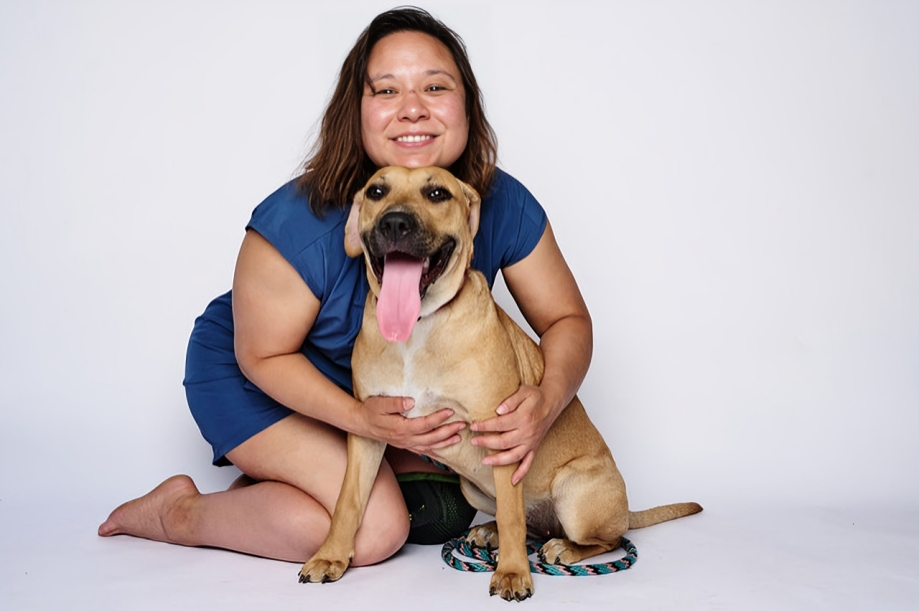READY TO ADOPT?
WHAT YOU NEED TO KNOW!
Deciding that you're ready to take the plunge and adopt a dog is exciting. But you can easily get overwhelmed – there are so many dogs to choose from, how can you possibly pick the right one? Or maybe you’ve always dreamed of that particular breed? Either way, here are a few things to keep in mind as you start looking.
Lifestyle & energy level
Home setup and landlord permission
Breed traits and purposes
(Also see our Common Mistakes Choosing a Dog document.)
The Right Dog For Your Lifestyle
First of all: What energy level do you want? Look at yourself (and be totally honest): are you the very active type or do you prefer to take it easy? Do you really want to go for long walks every day for the next several years? It's vital that you choose your new dog based on what fits your lifestyle.
If you work long hours, an adult dog is a better choice than a puppy. If you travel a lot, you may want a small dog to take along. If you lead a busy life, do you really have the time (and patience) to train a puppy? If you laze around at home watching TV a lot, a couch-potato dog may fit into your life better than one who is full of energy. Just think about how much playing, walking, or training (working) you really want to do with your new dog.
If you do have the heart to adopt a senior dog, you’ll likely escape many of the issues that plague the owners of younger dogs, including: house-training, super high-energy, obsessively wanting to play, destructive chewing on your valuables or play-biting you, and the challenge of walking nicely on leash!
What Kind of Dog Fits in Your Home?
How big is your home? It’s not necessarily about the size of the dog you adopt, but their energy level. Energetic and young dogs will need more space than calmer, older dogs. If you have a yard, is the fence tall, secure, and free of gaps for the dog you want?
All dogs will need to pee at LEAST 4 - 5 times per day, young puppies more often. If you live in an apartment or need to rely on communal areas, consider your neighbors and their dogs.
Your neighborhood also matters. Dogs that are fearful, reactive, or easily over-stimulated may not do well in high-traffic neighborhoods or busy apartment complexes. Consider the amount of dogs and people you will encounter on your daily route.
Check in With Your Landlord or Homeowners Insurance Company
If you rent, check with your landlord about permission, and breed or size restrictions. Ask if you'll need to put down a pet deposit or incur a monthly rent increase.
If you're a homeowner, check with your homeowners insurance company. Insurance companies vary tremendously on how they view dogs of certain breeds or whether they cover them at all.
Funky Mutt or Special Breed?
The breed question: Rescue dogs are often mixed breeds. Sometimes that includes clearly recognizable breeds, other times you’re in for a lifetime of guessing. But they all have one thing in common – they're all dogs, and somewhere back in time they all came from wolves. At some point, humans and wolf-dogs intersected and, as humans usually do, we picked what we liked best of individual dogs and started breeding for specific traits. From there, breed groups of dogs were created, each with a different purpose: working dogs, hunting dogs, herding dogs, companion dogs etc. Each of these groups of dogs possessed very specific traits, and these traits often remained fairly consistent within the breed.
For example, Huskies were bred to pull sleds for hours on end in freezing weather, they tend to have very high endurance, a thick coat for warmth, and the desire to run and roam all day every day. However, in our citified life, this means a Husky will need tons of exercise and extra help to stay cool in the summer heat. The German Shepherd was bred to protect and work, so if his desire to work is not met, he can become somewhat destructive. Retrievers were bred to retrieve birds during hunting and similar activities, often bird-rich marshlands, so don't be surprised if your Retriever is squirrel-obsessed or jumps into every pond he sees. Poodles (having hair, not fur) don’t shed, which makes them great for people with fur allergies, however the term “hypo-allergenic” is not completely correct: allergies can also be caused by dandruff from the dog’s skin, or by saliva. Also, because they don’t shed, their coats get easily matted, so they require a lot more grooming than a short-haired dog.
Think about your favorite breeds, then do your research to see if the breed you’re thinking of is the right temperament fit for you. A few minutes on the internet can give you a wealth of knowledge to point you in the right direction.
It’s All About the Temperament
That said, much MUCH, more important than the breed is to consider the individual dog. Dogs have their own personalities, including energy level and temperament. Not every dog of a certain breed is exactly the same, and with a mixed-breed dog, it takes some time to figure out which “side of the family” he/she most resembles, if any! Again, even with a pure-breed, you may not find the exact characteristics that the breed’s standards suggest; it's certainly possible to find a lazy Husky, an aloof Havanese, a complicated Labrador, or a timid Doberman. Dogs are a mix of many different qualities, just like us humans.
So with all that said, be aware of the breed heritage, but more importantly, pay attention to the individual dog’s energy level, temperament, age and needs.
If you are considering adopting a pitbull or pitbull mix, that’s fantastic! These dogs are by far the most misunderstood breed, their usually sweet temperament contradicted by their bad reputation. Read our handout on Bully-Breeds.
Shelters have an overwhelming overpopulation of these amazing dogs, and they are often overlooked for the wrong reasons. Because of their reputation, it’s very important to be an advocate for this breed by learning more about them.
There is more great information about their history and temperament here: www.badrap.org/breed-info/breed-history and www.vrcpitbull.com/pit-bull-facts
MEET SOME OF OUR ADOPTABLE DOGS
To inquire about A dog, APPLY USING THE BUTTON BELOW
If you are willing to adopt a dog straight out of the shelter, but are not sure how to choose one, you can also check out our Shelter Adoption Consultation service.






